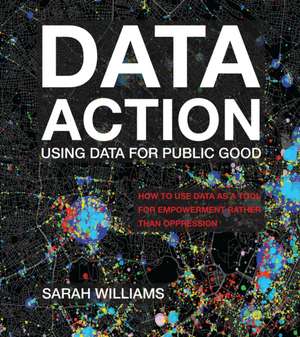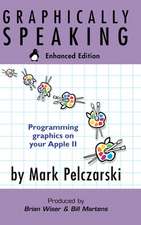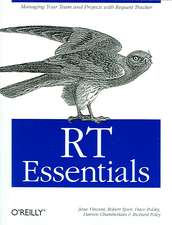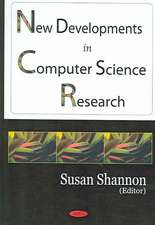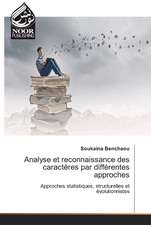Data Action
Autor Sarah Williamsen Limba Engleză Paperback – 20 sep 2022
Big data can be used for good--from tracking disease to exposing human rights violations--and for bad--implementing surveillance and control. Data inevitably represents the ideologies of those who control its use; data analytics and algorithms too often exclude women, the poor, and ethnic groups. In Data Action, Sarah Williams provides a guide for working with data in more ethical and responsible ways. Too often data has been used--and manipulated--to make policy decisions without much stakeholder input. Williams outlines a method that emphasizes collaboration among data scientists, policy experts, data designers, and the public. This approach creates trust and co-ownership in the data by opening the process to those who know the issues best.
Preț: 131.63 lei
Preț vechi: 193.45 lei
-32% Nou
Puncte Express: 197
Preț estimativ în valută:
25.19€ • 26.20$ • 20.80£
25.19€ • 26.20$ • 20.80£
Carte disponibilă
Livrare economică 25 martie-01 aprilie
Livrare express 08-14 martie pentru 74.81 lei
Preluare comenzi: 021 569.72.76
Specificații
ISBN-13: 9780262545310
ISBN-10: 0262545314
Pagini: 312
Ilustrații: 110 colour photos
Dimensiuni: 230 x 247 x 25 mm
Greutate: 1.12 kg
Editura: MIT Press Ltd
ISBN-10: 0262545314
Pagini: 312
Ilustrații: 110 colour photos
Dimensiuni: 230 x 247 x 25 mm
Greutate: 1.12 kg
Editura: MIT Press Ltd
Notă biografică
Sarah Williams is Associate Professor of Technology and Urban Planning at the MIT School of Architecture and Planning, where she is also Director of the Civic Data Design Lab. Trained in geography, landscape architecture, and urban planning, she was named one of the Top 25 Leading Thinkers in Urban Planning and Technology by Planetizen and 2012 Game Changer by Metropolis Magazine. Her designs and visualizations have been widely exhibited.
Cuprins
Introduction: Using Data Action ix
1 Big Data for Cities Is Not New 1
2 Build It! Data Is Never Raw, It's Collected 51
3 Hack It! Using Data Creatively 89
4 Share It! Communicating Data Insights 137
5 Data as a Public Good 187
Conclusion: It's How We Work with Data that Really Matters 213
Acknowledgments 223
Notes 227
Bibliography 251
Index 273
1 Big Data for Cities Is Not New 1
2 Build It! Data Is Never Raw, It's Collected 51
3 Hack It! Using Data Creatively 89
4 Share It! Communicating Data Insights 137
5 Data as a Public Good 187
Conclusion: It's How We Work with Data that Really Matters 213
Acknowledgments 223
Notes 227
Bibliography 251
Index 273
